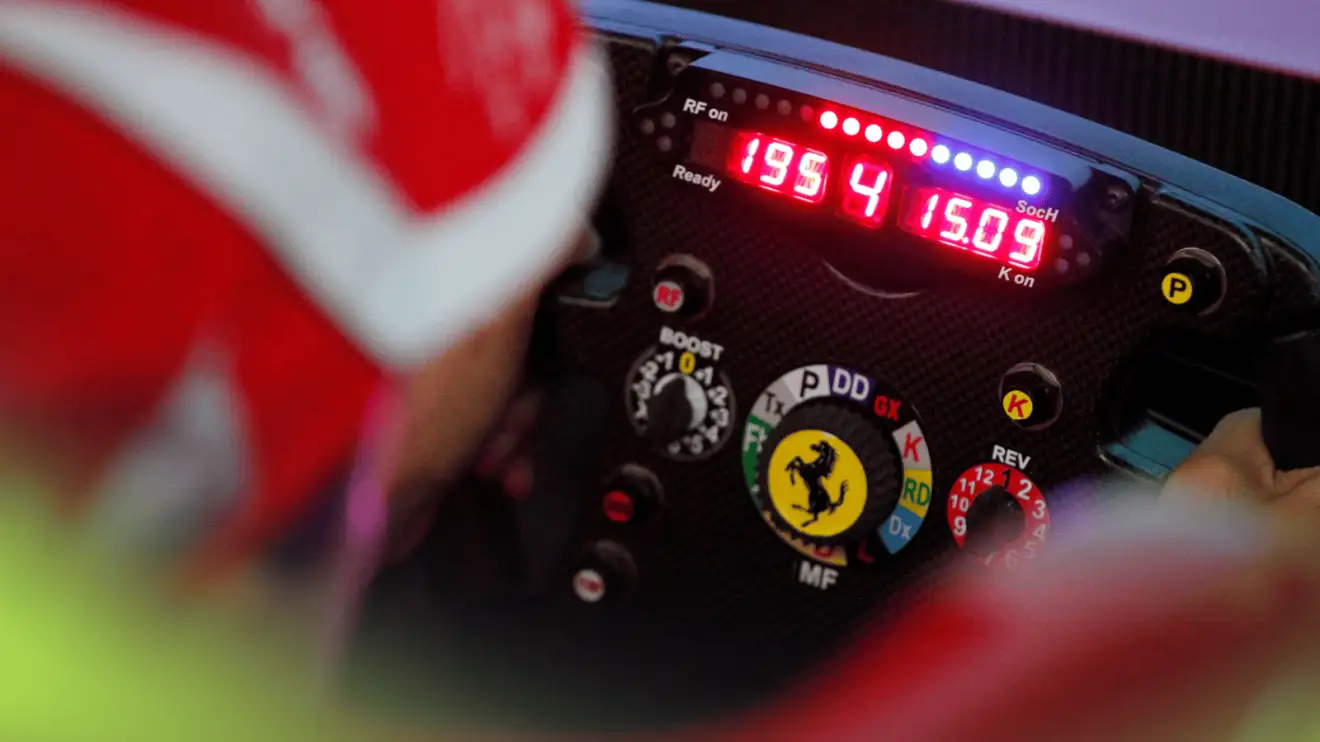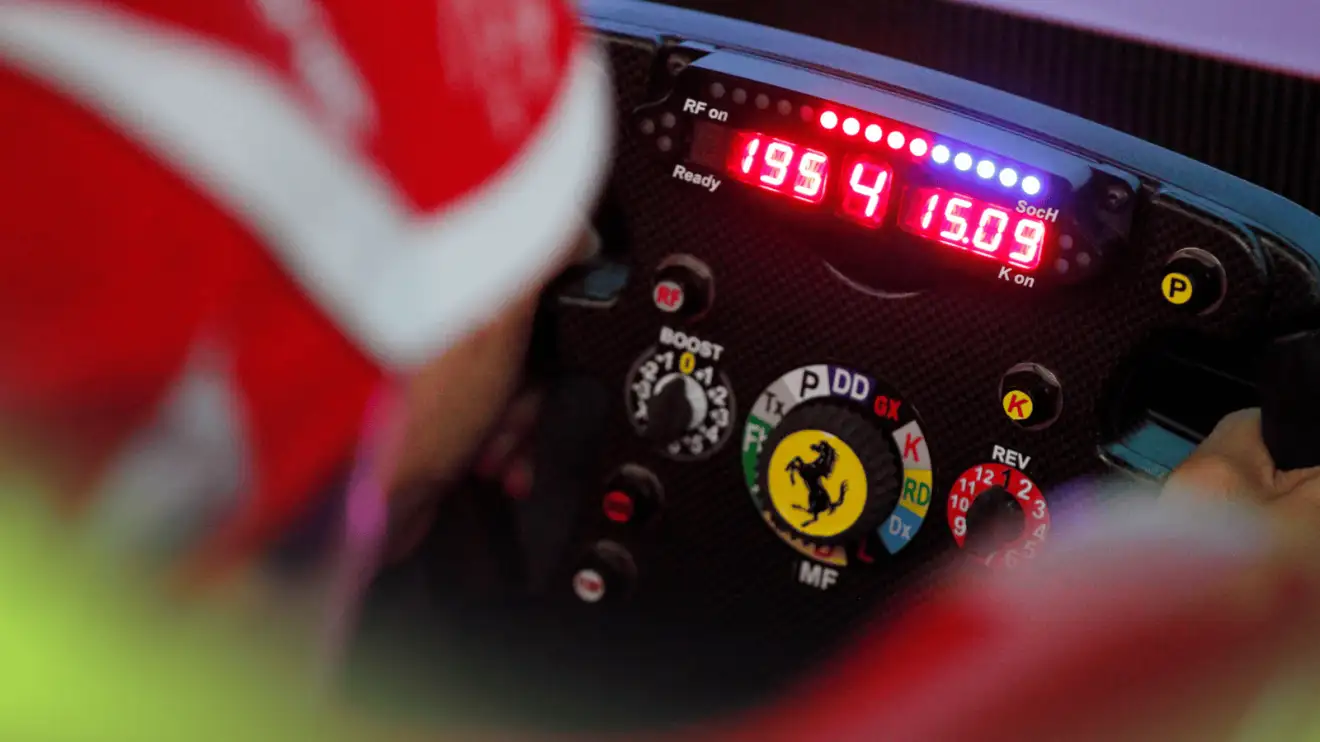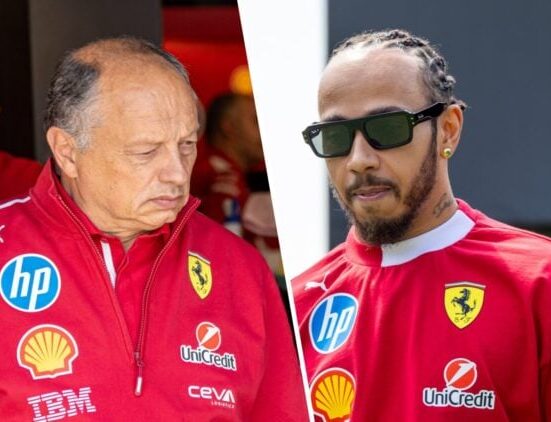KERS return, last-minute F1 2026 tweak on the table in crucial V10 meeting – reports
09 Apr 2025 5:00 PM

A Ferrari F1 steering wheel in use at the 2011 Italian Grand Prix at Monza
A return of KERS and a last-minute adjustment to the F1 2026 regulations could be two options on the table at Friday’s crucial meeting over V10 engines at the Bahrain Grand Prix, it has been claimed.
Formula 1 is set to undergo its biggest rule changes in some time next season with the engine and chassis regulations overhauled.
Bring back V10s? Key F1 issue to be decided at Bahrain Grand Prix meeting
The sport will embrace 50 per cent electrification, fully sustainable fuels and active aerodynamics, with the engine rules subjected to the biggest changes since the arrival of V6-hybrid power units at the start of 2014.
Although there is less than a year until the F1 2026 rules are implemented, FIA president Mohammed Ben Sulayem threw a spanner in the works by voicing a willingness for F1 to return to the popular V10 engines, last used in 2005, on sustainable fuels.
PlanetF1.com revealed days later that the FIA had established a working group to evaluate the feasibility of a return to V10s, with a report last month claiming that the 2026 regulations could be dropped entirely to fast track the move to revert to V10 engines, potentially as soon as 2028.
Join the debate: Should F1 bring back V10 engines?
👉 Should F1 seriously evaluate a return to the V10 engine? PlanetF1.com’s verdict
👉 F1 2026: Confirmed teams and power unit suppliers for F1’s huge regulation changes
However, PlanetF1.com understands that the suggestion of a return to V10 engines has been met with a lukewarm response by F1’s engine manufacturers, who have already piled vast resource into the 2026 plans.
A meeting is set to be held this Friday at the Bahrain Grand Prix to discuss the matter, with teams reportedly set to reject the proposal of a return to V10s.
PlanetF1.com understands that the calls to return to V10s could be a mere negotiating tactic, potentially opening the door to a potential compromise solution in the future.
And a report by the Italian edition of Motorsport.com has claimed that one compromise could involve the reintroduction of the KERS [Kinetic Energy Recovery], the hybrid system in place in 2009 and then between 2011 and 2013, along with V10s.
The introduction of KERS during the era of V8 engines saw F1 embrace hybrid technology for the first time, recouping energy normally lost under braking to deliver a temporary power boost, manually activated by the driver via a button on the steering wheel.
KERS introduced an added tactical element to on-track battles between drivers, whose use of the system was limited to a maximum of 60kW of power and 400kJ of energy per lap.
It is said that a ‘small’ KERS system capable of 100kW could be coupled with a V10 engine to help ensure that F1 remains faithful to its sustainability ambitions.
The report adds that the likes of Mercedes, Ferrari and Audi F1 could be won around by the plans to bring back V10 engines if the hybrid element of the power unit is retained, with the plan likely to prove more cost efficient than the current plans for 2026.
It adds that the timing of a potential move to V10s could also prove ‘divisive’ amid suggestions that the timespan of the 2026 rules – originally planned to be in place for five years – could be reduced to three or four to accelerate a return to V10s.
Meanwhile, a separate report by Germany’s Auto Motor und Sport has claimed that those most in favour of a return to V10s could be keen to push through ‘something completely different’ – potentially a last-minute tweak to the power ratio of the 2026 engines.
As it stands, it is believed that the 2026 engines will see a 55:45 split between the internal combustion engine and the electrical ancillaries.
With the 2026 technology proving difficult for manufacturers to master, however, it is said that this could be altered to around 70:30 or 80:20 for at least the beginning of the new rules cycle.
Speaking to media including PlanetF1.com at the Daytona 24-hour race in January, Koji Watanabe, the president of the Honda Racing Corporation, admitted that manufacturers are “really struggling” with the demands of the 2026 engine rules.
Mr Watanabe said: “We are struggling. Now we are trying our best to show the result next year.
“Everything is new. The motor is a new 355-kW, very compact one we need. Also the lightweight battery, it’s not so easy to develop. And also the small engine with the big power.
“Everything is very difficult, but we try our best.”
It is believed that Mr Watanabe, who was speaking in a second language, was making a general comment on the challenges of the new rules for F1’s engine manufacturers rather than referring specifically to Honda’s progress ahead of F1’s new era.
Mr Watanabe recently indicated that Honda are keen to see a hybrid element retained in any plans for F1 to return to V10 engines.
Read next: Rated: The F1 track approval scale that crushes Jeremy Clarkson’s dream










Leave feedback about this